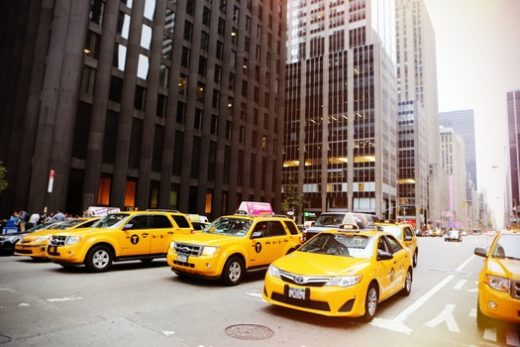Report predicts 95% of US cars will be autonomous by 2030
Report predicts 95% of US cars will be autonomous by 2030

A lot can happen in 13 years. New technologies emerge and become commonplace in the market, political and economic climates shift several times over, and industries rise and fall with changes in consumer demand. If a new report titled Rethinking Transportation 2020-2030 is correct, the transportation industry is about to undergo a very transformative decade.
It has been 13 years since the first privately funded spaceplane left the Earth’s atmosphere. Today, companies like SpaceX are not only sending rockets into space but have discovered a way to make stages reusable.
See also: Automotive 2.0 – The new road ahead in autonomous vehicle
Likewise, in 2004 iPods only played music. We were still several years away from the first iPhone. The Internet of Things was still largely just a concept discussed in publications like Scientific American with very little actual real-world application. The United Nations ITU hadn’t even released its first official report on the subject.
So, when a report like this one from RethinkX makes bold claims about a massive shift in a long-standing industry, it is certainly probable.
A bold prediction?
RethinkX’s report states the following:
By 2030, within 10 years of regulatory approval of autonomous vehicles (AVs), 95% of U.S. passenger miles traveled will be served by on-demand autonomous electric vehicles owned by fleets, not individuals, in a new business model we call “transportas-a-service” (TaaS).
This is a very bold prediction. It assumes that the vast majority of passenger travel will not take place inside privately-owned cars as they currently are, but by an autonomous vehicle that can be called with an app and arrives at your driveway ready to take you to your destination.
This would change the automotive industry as a whole, very dramatically. If this extreme shift occurs, it would change the way automakers design and market vehicles. Consumers would no longer be the owners of their own transportation as they commonly are today. They would, instead, be reliant on corporations to take them from point A to point B.
The benefits of a new service industry
This report is made more plausible when you consider long-term strategies coming into shape from companies like Uber. Uber is currently using funds generated by privately-owned vehicles operated by human drivers to develop a fleet of autonomous ones that would pick up and deliver passengers without anyone having to touch the steering wheel.
The report also proposes that this solution would decrease the number of passenger vehicles on American roads from 247 million to 44 million over a period of a single decade. Fewer vehicles mean less traffic and less space required for parking lots.
Autonomous vehicles are also being developed safer than human-operated ones. The technology is still in its infancy, however, with more refinement and additional testing, it could provide a strong case for a disruptive – and critical shift.
Despite millions of miles being driven by autonomous vehicles over the past half-decade with a fraction of the collisions that human drivers average, we do hear quite a bit about the occasional collision – especially when someone is injured or killed.
Over 30,000 people are killed in the United States each year in automotive collisions. By any measure, this number is too high. If autonomous vehicles reach a point where they are indeed more trustworthy than human drivers in even the most unusual circumstance, then it might just give consumers a reason to skip their monthly car payments in exchange for a ride fare.
The post Report predicts 95% of US cars will be autonomous by 2030 appeared first on ReadWrite.
(17)



